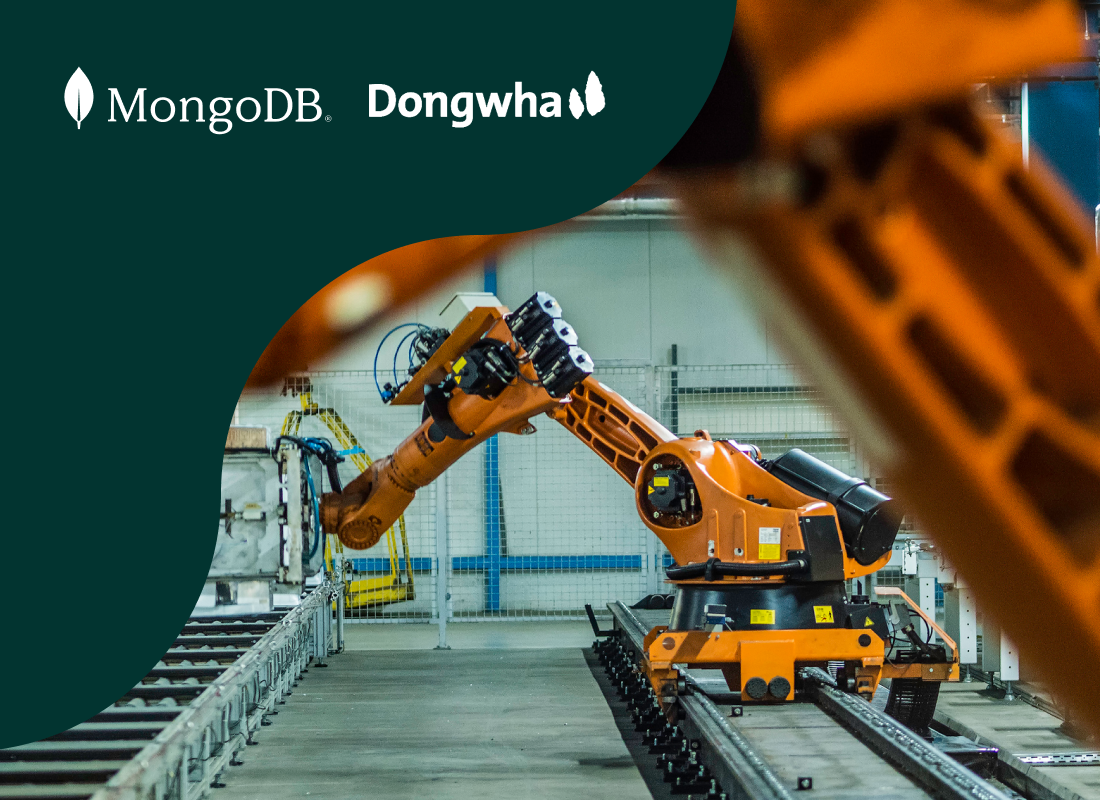Korean manufacturing leader Dongwha accelerates innovation in Industry 4.0 with MongoDB Atlas


“Cloud-based MongoDB Atlas simplifies complex tasks for administrators, improves reliability and availability, and provides a working environment where engineers can focus on application development.”
Uram Jeong
Senior Associate, Data Lab, Dongwha Enterprise
Senior Associate, Data Lab, Dongwha Enterprise

“Since MongoDB plays the role of database administrator and handles some of our tasks, we can focus on business-critical projects while reducing the workload.”
DoYoung Kang
Senior Associate, Data Lab, Dongwha Enterprise
Senior Associate, Data Lab, Dongwha Enterprise

“We strive to create innovative value that drives digital transformation in the manufacturing industry through productive data collection and utilization. We will continue to work closely with MongoDB to realize the potential of Dongwha Enterprise.”
SeRi Song
Data Lab Manager, Dongwha Enterprise
Data Lab Manager, Dongwha Enterprise
Take the next step
Get access to all the tools and resources you need to start building something great when you register today.
.svg)